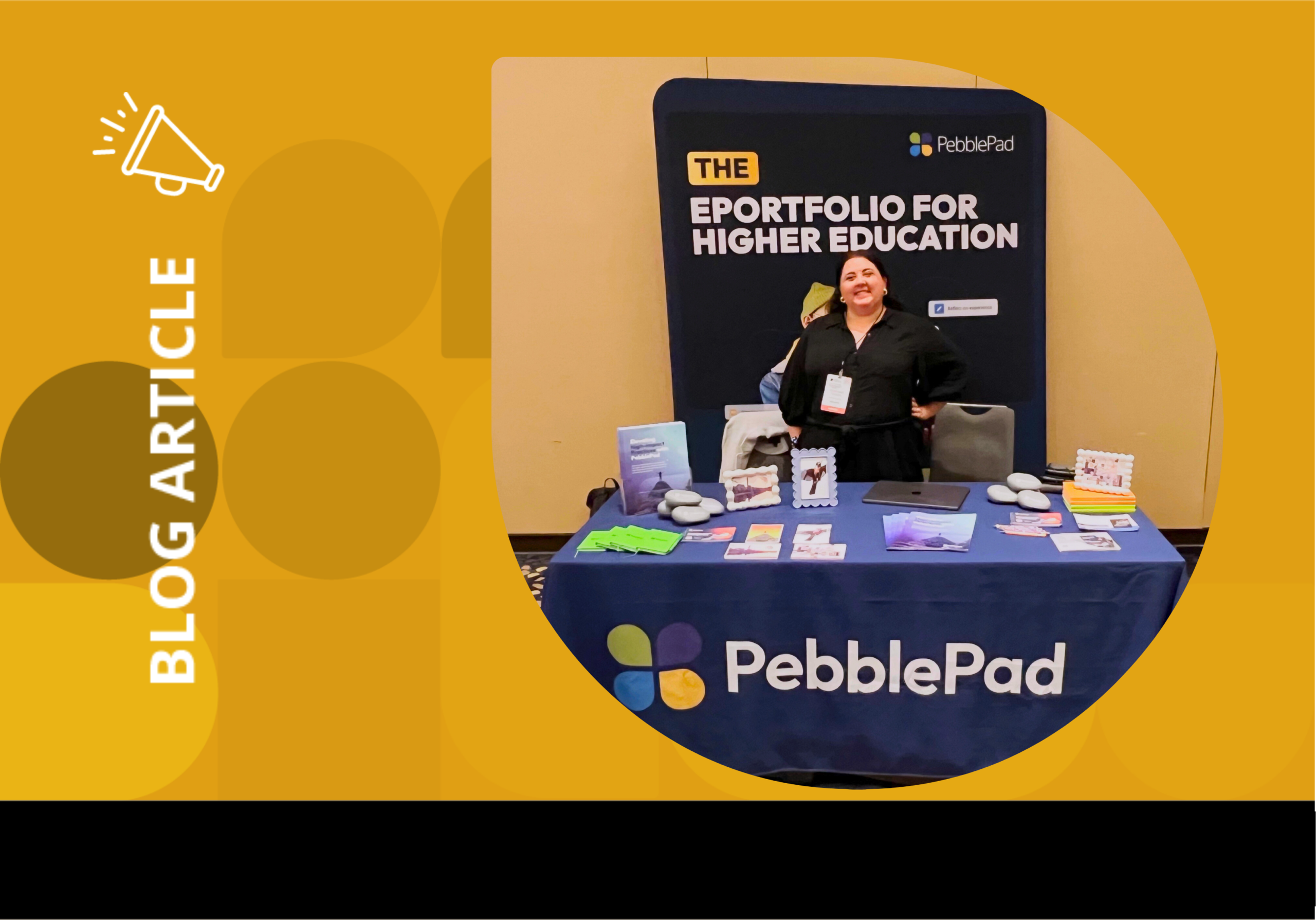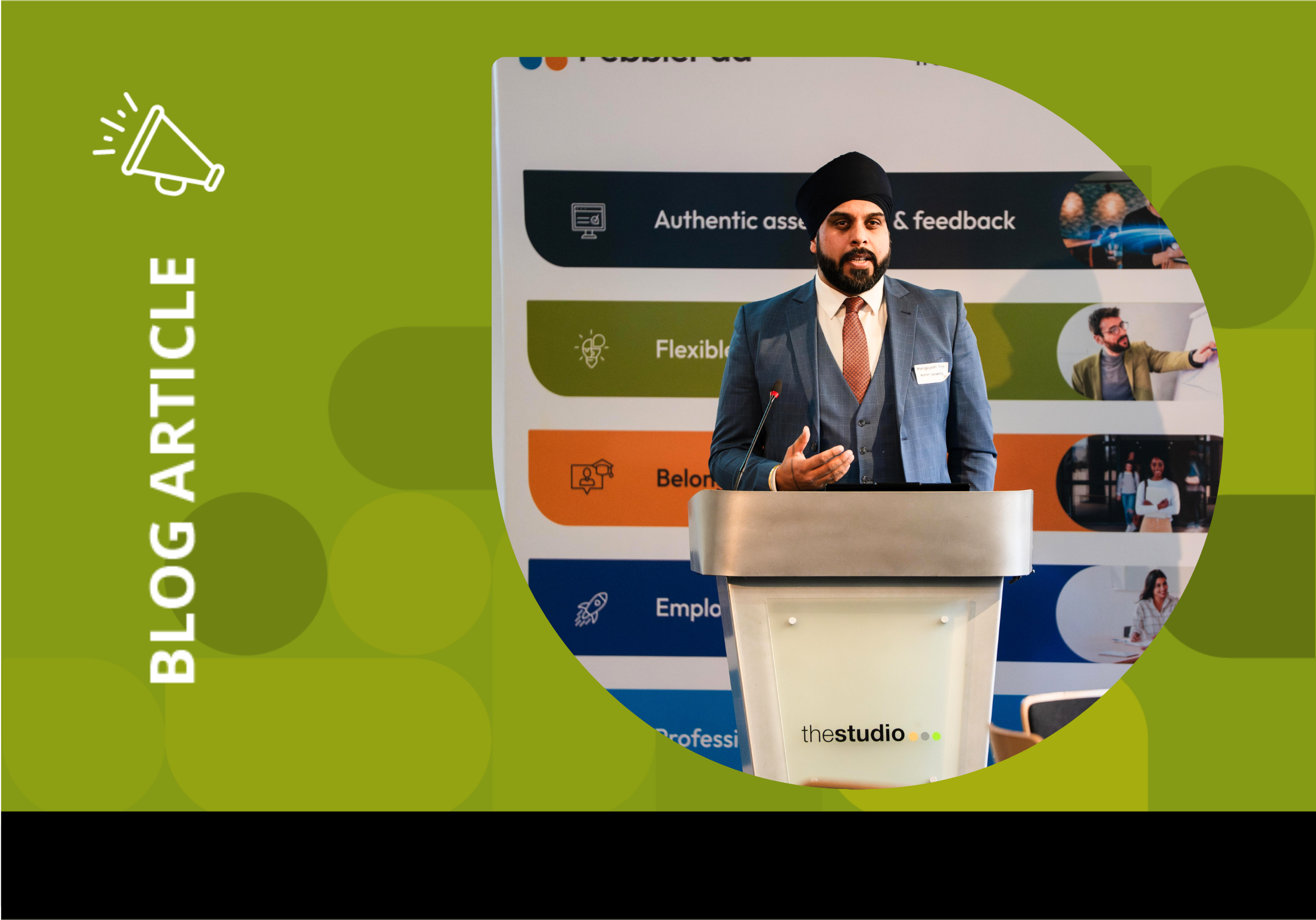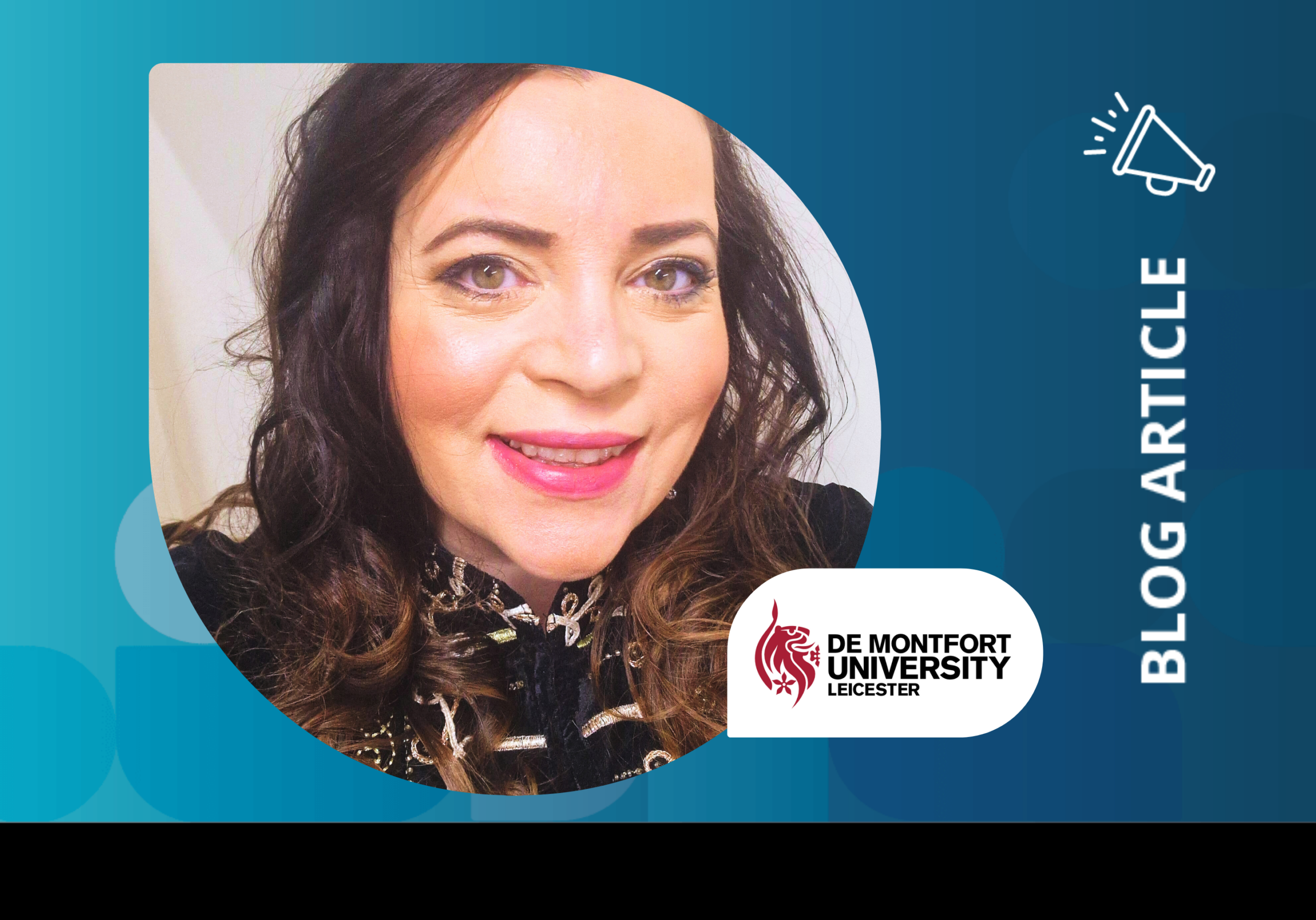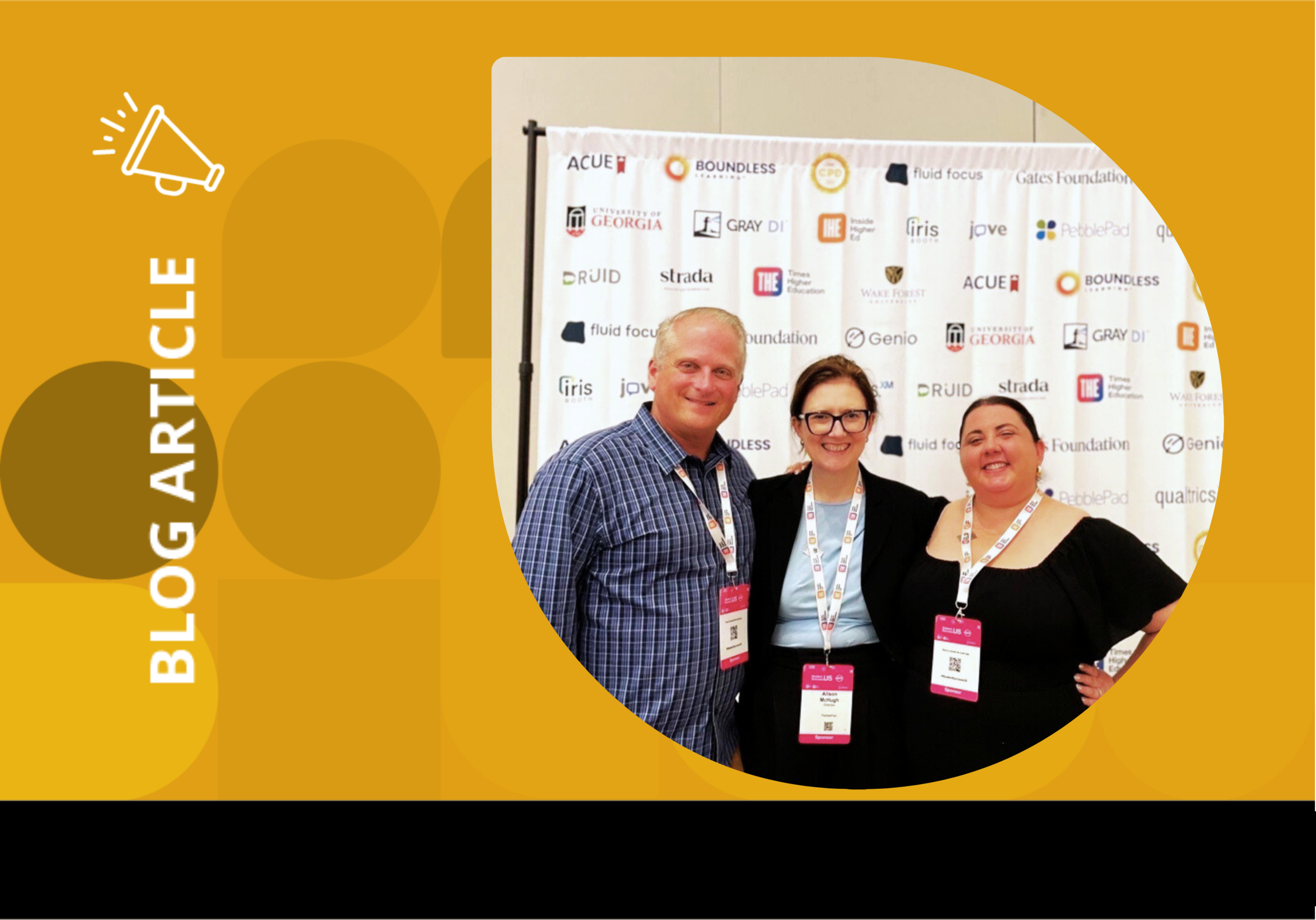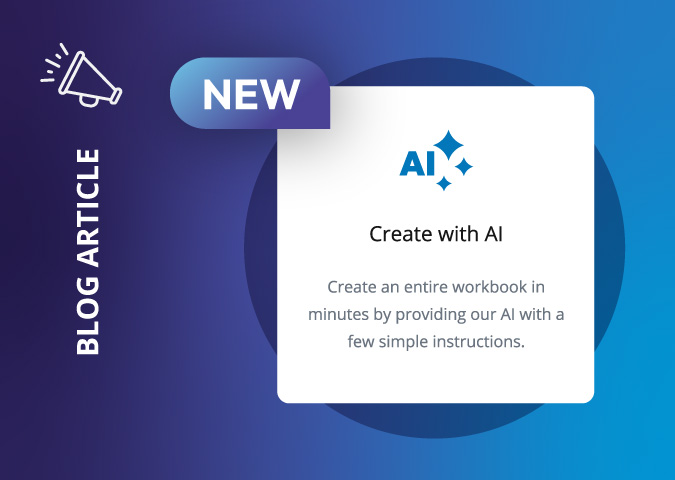The recent Scottish User Group meeting brought together inspiring voices from the University of Strathclyde and the University of Edinburgh. The event showcased how PebblePad is transforming academic workflows – particularly in competency-based education and Double Blind Marking – and how AI could support processes in the future.
1. University of Strathclyde: Scaling with strategy and support
Hosting the event at the university, Deputy Head Education Technology Dr. Ainsley Hainey and Learning Technologist Jamie Spence delivered a powerful presentation on Strathclyde’s journey with PebblePad. Since its initial rollout in Engineering (2017) and Business (2018), the university has expanded its Graduate Apprenticeship offering to 10 programmes. Many of these are supported by PebblePad with its use expanding to incorporate Progress Reviews, a process involving the apprentice, Work Based Learning Advisors (WBL) and the employer.
Thanks to the PebblePad Academy’s Essentials Training, the teams supporting PebblePad across the academies such as Richard Llewellyn, a WBL Advisor in Civil Engineering, are increasingly self-sufficient. Importantly, they are able to support employers using the free external accounts to adopt new processes in PebblePad.
Organic growth
Strathclyde has seen organic growth across schools and faculties, especially after adopting PebblePad for apprenticeships in the Business School with the university now leveraging PebblePad for:
· Competency Framework Workbooks
· End Point Assessments for apprenticeships and work-based learning
· LLTPC (a teacher training course for Further Education)
· Speech & Language Therapy, using PebblePocket for evidence collection
· Medical Statistics Degree Apprenticeships with dedicated tabs for progress reviews.
Finally, Jamie is developing a training workbook for staff and students, with excitement building around PebblePad’s upcoming Help Hub and SelfServe features. Enhanced support has been a game-changer, too – not just for Jamie but also for Richard, who now has direct access to PebblePad support.
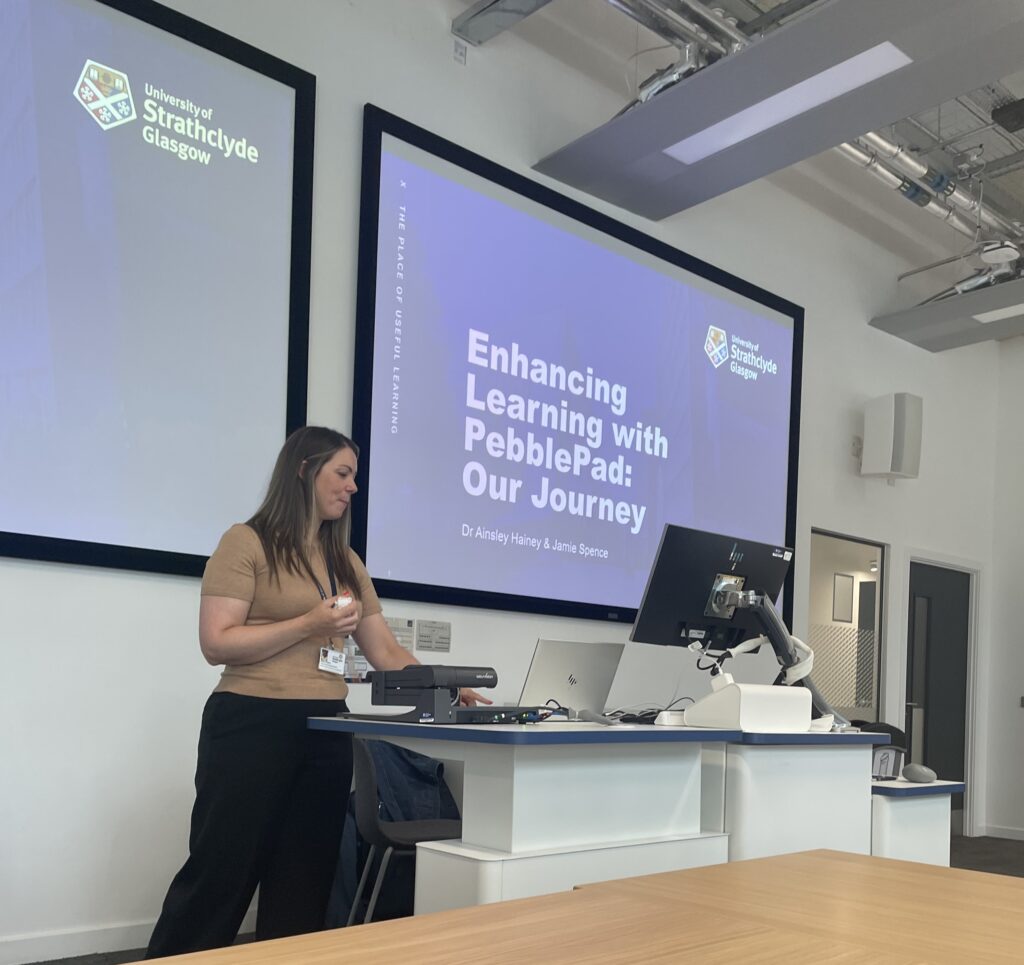
2. University of Edinburgh: Streamlining Double Blind Marking
The university’s Online Assessment & Feedback Advisor, Robert Chmielewski, shared a compelling before-and-after story of the Double Blind Marking (DBM) process. Previously using Submission Viewer 1 (SV1), staff had to navigate over 20 clicks to complete marking tasks. Now, thanks to Submission Viewer 2 (SV2), that’s been reduced to just three clicks – a dramatic improvement in efficiency and user experience.
Edinburgh is currently using PebblePad for DBM across three schools – Business, Law and Divinity – with Social Sciences to follow soon. The university’s experience has been so positive that it is encouraging peers at Strathclyde to adopt similar workflows, saying that PebblePad is “like a jewel” for DBM with ATLAS being the only platform that ticks all the boxes for this complex process.
Inspiring innovation
Robert’s innovative use of SV2 workspaces and Feedback Templates has also allowed him to consolidate what was previously a two-workspace model (one for double blind feedback and one for reconciliation) into a single workspace. It remains to be seen whether schools will adopt Robert’s streamlined SV2 approach this summer when he presents it to his colleagues.
That said, Alison Christie, Learning Technologist at the university’s Business School, is now considering switching from a three-workspace to a two-workspace strategy, inspired by Robert’s success.
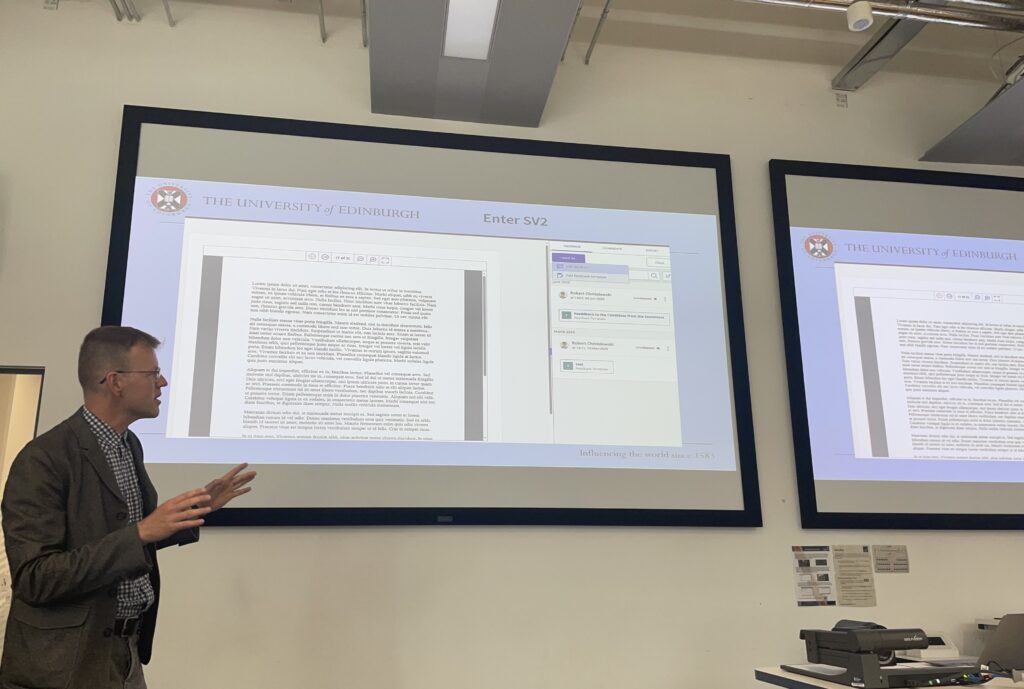
3. PebblePad AI prototyping: Smarter assistance, deeper insights
As part of an exclusive session for our user groups, we showcased a prototype exploring the potential use of AI in PebblePad. This session sparked thoughtful discussion and blue-sky thinking around the future possibilities for AI – such as supporting users in creating Workbooks.
Edinburgh’s Robert Chmielewski praised the potential to help users navigate the system more efficiently and arrive at an outcome with fewer clicks, enhancing workflows. Strathclyde’s Ainsley Hainey noted that sometimes “you don’t know what you don’t know,” and having an AI assistant embedded in a workbook could be incredibly helpful for surfacing insights and guiding users. Edinburgh’s Alison Christie raised important questions about data mining and institutional IP, highlighting the need for transparency and control over any AI features.
Looking ahead
The session underscored the power of community learning and the value of shared strategies. From scaling apprenticeship programmes to simplifying DBM, both Strathclyde and Edinburgh are leading the way in educational innovation with PebblePad.
As more institutions look to enhance their digital learning environments, these insights offer a roadmap for success – and act as a reminder of how even small improvements in workflows can have a significant impact.



